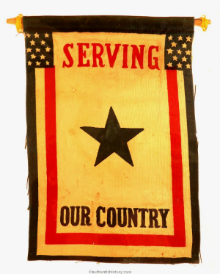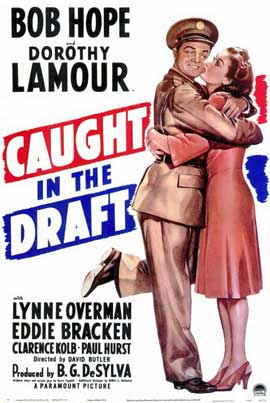 Words are interesting little things. Subtle, sometimes vague, rarely as expressive as we’d like them to be. In fact, I imagine most of us use certain words habitually without investing much thought into what they really mean to us, or paying much attention as to how we’re deploying them to communicate our thoughts and feelings and ideas.
Words are interesting little things. Subtle, sometimes vague, rarely as expressive as we’d like them to be. In fact, I imagine most of us use certain words habitually without investing much thought into what they really mean to us, or paying much attention as to how we’re deploying them to communicate our thoughts and feelings and ideas.
“Service” is one of those words that’s caught my attention of late. It’s caught my attention because, as a member of the U.S. Army Reserve, I’m often thanked for my service. I’m thanked by family and friends, but even more frequently I’m thanked for my service by complete strangers when they discover that I’m in the military (and especially when they find out I’m currently deployed to Iraq).
While I get their basic intention, and I want to honor their sentiment, there is just something about our use of the word service in reference to membership in the military that I’m not comfortable with. Quite frankly, there is nothing about what I’m doing with the Army that feels remotely like something I would describe as service.
Merriam-Webster defines service, in part, as “useful labor that does not produce a tangible commodity”. This is the definition that most closely matches my immediate and intuitive understanding of what service means. Merriam-Webster also provides for service as “the act of a male animal copulating with a female animal” amongst the three pages of definitions associated with the word service, so obviously there’s room for the term to mean different things to different people in different contexts.
My feeling, however, is that when most Americans thank a member of the military “for their service”, there is at the very least an implication that the military person (I’m quite consciously avoiding using the term serviceman in this article; trust me, it’s not easy) is in some sense doing something fundamentally altruistic; that there is a very real sacrifice that the person is making in order to participate in the military, and that this person is not expecting full, material compensation for this participation.
Here’s where it rubs me. My association with the military feels very much not like service and very much like a job. A good job! An honorable job! Perhaps one of the last truly honorable professions available these days. I have met some of the finest examples of humanity I’ve ever had the privilege of associating with through the military, and I’ve accomplished things within and because of the Army that I don’t think I ever would have accomplished had I never enlisted. Being a Soldier has made me a better person, no question. I’m proud of my association with the military both as an individual and as an American.
But there is nothing sacrificial or altruistic about my choice to be a Soldier, and I can count on one hand the number of people I’ve met in my twelve year career whom I honestly believed had joined the military for purely principled reasons. I, and I dare say the vast majority of military personnel, are in the military because it benefits us directly and concretely – specifically in our bank accounts. This is not fundamentally an altruistic pursuit; the day we stop getting paid is the day 99% of the American military leaves and finds another profession.
 I think the idea of describing military association as service goes back to the not-so-distant past, when most folk who found themselves toting a rifle and digging fox holes did so as the result of compulsory service, aka The Draft (cue Dramatic Chipmunk.) In WWI, the United States drafted 2.8 million men and, in WWII “50 million men from eighteen to forty-five (years of age) were registered, 36 million classified, and 10 million inducted (into the military via the draft).”
I think the idea of describing military association as service goes back to the not-so-distant past, when most folk who found themselves toting a rifle and digging fox holes did so as the result of compulsory service, aka The Draft (cue Dramatic Chipmunk.) In WWI, the United States drafted 2.8 million men and, in WWII “50 million men from eighteen to forty-five (years of age) were registered, 36 million classified, and 10 million inducted (into the military via the draft).”
The draft was also used by the United States to fight the Korean War and, perhaps most famously the Vietnam War. Over the course of three successive American generations, participation in the military became both widespread in American society and largely an experience of being ripped from ones life and made to participate by force of law.
In this context it makes sense to me to describe participation in the military as service: “labor that does not produce a tangible commodity”, at least for the draftee doing the serving. Yes, draftees were paid and received other veterans benefits in time, but they weren’t really tromping through rice patties in Vietnam because they wanted the G.I. Bill, if you get my drift.
This all changed in 1973 when the United States did away with the draft and transitioned to an all volunteer force. We haven’t looked back since. No one is calling for compulsory military service unless they’re trying to force Senator’s children to fight as a means of making American political leaders think twice about starting wars. The U.S. military sure as hell doesn’t want to repeat the experience of dealing with draftees. It’s been nearly 40 years since the draft was last used; every single person currently in the U.S. military has volunteered to participate for a period of time in exchange for a specific set of contractual obligations made to them by the U.S. Government. Military participation in America has effectively stopped being primarily about service and transitioned to labor given in exchange for both tangible and perceived intangible benefits to the individual.
Let me take a second and make something explicit, because I recognize I’m poking at something of a sacred cow in some corners of American culture. The fact that the overwhelming majority of military personnel join the military for basically self-interested reasons is not grounds for criticism or degrading of their participation in military life. Self-interest makes the world go ‘round! Self-interest and good, honorable, patriotic intention can and often do go hand in hand.
I also recognize that there are some who do have significant altruistic motivations and intentions towards patriotic service. I’m thinking specifically of the groundswell of folks who joined the military in response to 9/ll out of a desire to participate in the response to what they saw as an attack on the American way of life; the most famous example being Patrick Tillman. There’s also a small, but not insignificant number of immigrants and non-United States citizens who have joined the U.S. military out of a sense of obligation to give something concrete back their newly adopted homeland. All these things are true, and I’m in no way questioning the integrity or honorable spirit of any member of the U.S. military.
 I’m just saying that I’m not sure it’s appropriate to call it service any longer. “Thanks for defending our country”, “Thank you for choosing to fight so that my children don’t have to”, “Thanks for fighting the bad guys over there so we don’t have to fight them over here”, “Thank you for helping to keep America free”. These all seem like perfectly appropriate expressions of patriotic gratitude. Describing military participation as service, however, creates a subtle set of assumptions that I don’t think are accurate and that, I fear, lead us to make bad decisions about our relationship to our military as a society and as a nation.
I’m just saying that I’m not sure it’s appropriate to call it service any longer. “Thanks for defending our country”, “Thank you for choosing to fight so that my children don’t have to”, “Thanks for fighting the bad guys over there so we don’t have to fight them over here”, “Thank you for helping to keep America free”. These all seem like perfectly appropriate expressions of patriotic gratitude. Describing military participation as service, however, creates a subtle set of assumptions that I don’t think are accurate and that, I fear, lead us to make bad decisions about our relationship to our military as a society and as a nation.
I, however, am not going to go into what subtle, unspoken meta-messages come with describing military participation as service. This is long enough, and I’ll leave that analysis for all of you, dear and lovely and much-smarter-than-I-am Crasstalk commentariat.
Honestly, maybe one of you will be able to provide a cogent argument for why my military career really is best described as service, and why I shouldn’t fumble with a decent response when a well intentioned stranger thanks me for my service as I’m walking through the airport in my ACU’s. Or perhaps why I shouldn’t cringe when my parents force me to come to their church in full military dress uniform so they can parade me about in front of their friends, all of whom will feel obliged to thank. me. for. my. service. (I know, I know, they’re my parents and they’re proud of me. I just hate the uninvited attention from strangers. It’s almost like being visibly pregnant – everyone feels they have license to come up and share their “Well, when I was . . .” stories.)
Also, if even ONE of you jackasses thanks me for my service in the comments . . .
Happy Memorial Day everyone! Drink a beer or three for me.